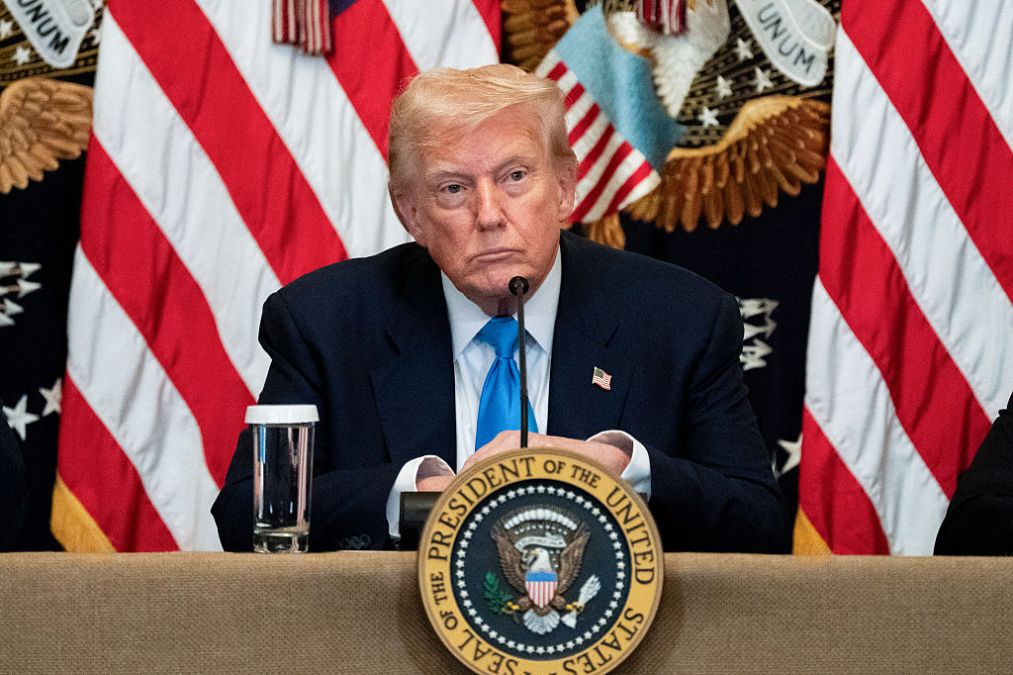The Trump Administration has unveiled a new initiative aimed at revolutionizing how Americans manage and share their healthcare data, partnering with major technology firms to create a private health tracking system. While proponents hail this move as a critical upgrade for the fragmented U.S. healthcare system, digital privacy experts are voicing immediate and serious concerns about the security and privacy implications for sensitive patient data.
President Donald Trump emphasized the long-overdue need for a high-tech overhaul in America’s healthcare networks during an event announcing the initiative. This ambitious plan seeks to facilitate easier access to health records nationwide, addressing decades of challenges in making patient information seamlessly transferable between providers.
According to a statement from the U.S. Centers for Medicare & Medicaid Services (CMS), the administration has secured commitments from over 60 prominent tech and healthcare companies, including giants like Amazon, Apple, Google, and OpenAI. These collaborations are intended to lay the groundwork for a next-generation digital health ecosystem, promising improved patient outcomes, reduced burdens on providers, and enhanced overall value in healthcare.
Historically, efforts to make health records more accessible have been a persistent federal goal, driven by the vision of enabling patients to easily switch between medical professionals. However, such initiatives have consistently faced significant hurdles, primarily due to complex privacy concerns and the competitive nature of proprietary record systems offered by various companies.
The current initiative, as outlined by CMS, will prioritize the “easily and seamlessly” sharing of information between patients and medical providers, alongside “increasing the availability of personalized tools” for informed health decisions. Initial targets for this digital health push include applications focused on medication management, utilizing artificial intelligence to assist patients, and transitioning from traditional paper intake forms to efficient digital check-in options.
Despite the optimistic outlook from the administration, the announcement has prompted immediate pushback, particularly from data privacy experts. Andrew Crawford, a senior policy counsel at the Center for Democracy and Technology, raised critical questions regarding how patient data will be collected, used, and shared by companies potentially not bound by HIPAA, the federal law protecting personal health information. The concern is that sensitive health information could be shared beyond requested services, potentially with advertisers, leading to targeted individuals based on health inferences.
Conversely, CMS has affirmed that the initiative will be “more secure, and more personalized,” leveraging “secure digital identity credentials” to obtain medical records. Dr. Brian Anderson, CEO of the Coalition for Health AI, acknowledges “outstanding questions” regarding data protection for information shared with non-HIPAA-covered tech companies. Yet, he believes these challenges are surmountable, emphasizing the need for public and private sectors to collaborate and define clear “rules of the road” to ensure patient data is used solely as intended.
Crawford, however, remains skeptical about the initiative’s actual impact on improving the quality of care. While acknowledging existing system flaws, he awaits specific details on how sharing more information with private entities, many operating outside HIPAA’s direct purview, will genuinely benefit patient outcomes. The fundamental question revolves around whether this expansion of health technology integration will truly enhance healthcare quality or primarily serve commercial interests.
This ambitious health technology endeavor by the Trump administration underscores a pivotal moment for healthcare modernization, but it simultaneously ignites a fervent debate over the balance between innovation and safeguarding individual privacy concerns in the digital age. The successful implementation hinges on transparent policies and robust protections to ensure public trust in this evolving digital health landscape.





Leave a Reply